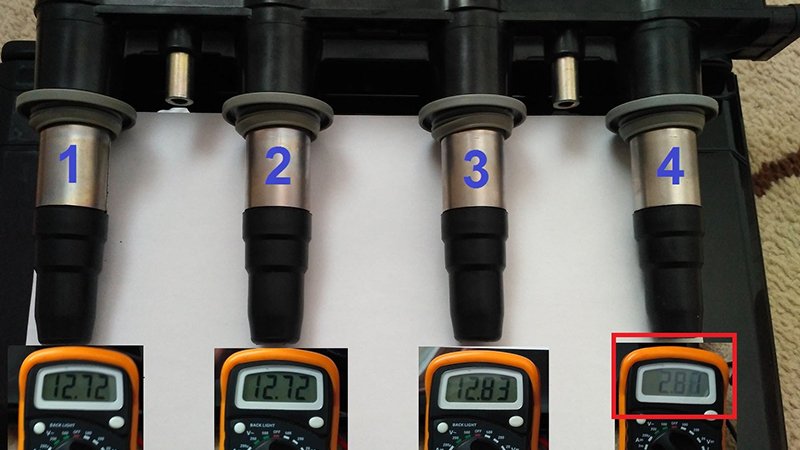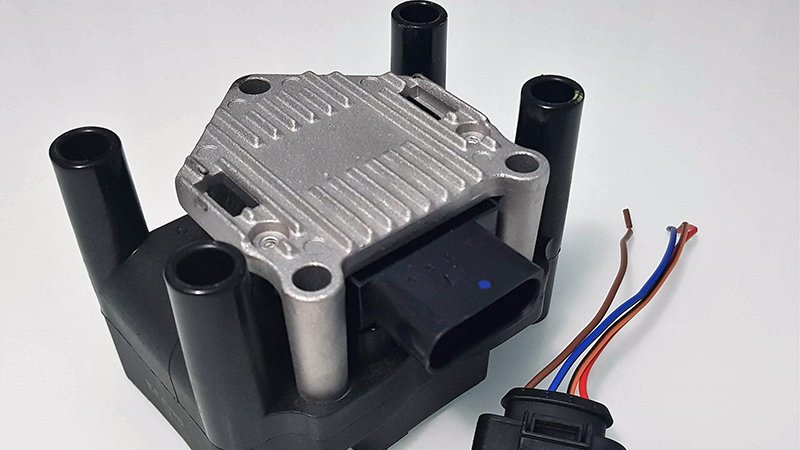If you're involved in automotive repairs or car maintenance, you’ve probably heard of cylinder coils. But what exactly are they, and why are they so important? Let’s break down the essentials you need to know before making a purchase.
Cylinder coils, or ignition coils, are vital components that convert battery voltage into a high-voltage current, allowing the spark plugs to ignite the air-fuel mixture. Understanding how they work will help you make informed buying decisions.
Before you make a purchase, it’s important to understand what cylinder coils do and how to choose the right one for your vehicle. Let's explore the key factors you should consider when buying ignition coils.

What does a cylinder coil do?
At its core, the cylinder coil is responsible for generating the electrical current that ignites your vehicle’s engine. But how does this process work, and why is it crucial for your car’s performance?
Cylinder coil1 take the low-voltage current from the battery and convert it into a high-voltage current, which is sent to the spark plugs to ignite the air-fuel mixture. This is essential for starting and running your engine.
The ignition coil2 is the heart of the ignition system in your vehicle. It plays a crucial role in the timing and efficiency of your engine. The coil operates by inducing a magnetic field, which gets stored in the coil windings. When the voltage reaches a certain point, this magnetic field collapses, creating a high-voltage pulse. This pulse is sent to the spark plugs to ignite the fuel-air mixture, sparking the engine to life.
How it works:
- Power Supply: The battery supplies low voltage to the ignition coil3.
- Magnetic Field: Inside the coil, there’s a magnetic field that builds up as the current flows.
- Discharge: When the magnetic field collapses, it generates a high-voltage pulse.
- Spark: This pulse is sent to the spark plugs, creating a spark that ignites the fuel mixture.
Understanding how this process works is essential because the performance of your cylinder coil4 directly affects your car's engine efficiency. If the coil malfunctions, you might notice poor engine performance, reduced fuel efficiency, or even engine misfires.

What to look for when buying ignition coils?
When purchasing ignition coils5, you can’t just pick any brand or model. You need to consider several key factors to ensure you get the right fit for your vehicle. So, what should you look for in an ignition coil?
The right ignition coil should match your vehicle’s make and model, ensure consistent performance, and be durable enough to withstand high temperatures. Let’s go over the most important factors to consider before buying.
Choosing the right ignition coil6 can be a daunting task, especially with so many options available. To make an informed decision, here are some of the most important factors you should evaluate:
Key factors to consider when buying ignition coils:
| Factor | Importance | Actionable Steps |
|---|---|---|
| Compatibility | Ensures correct fit for your vehicle | Double-check vehicle make, model, and year before buying |
| Brand Reputation | Guarantees quality and reliability | Look for well-established brands with positive reviews |
| Material Quality | Affects longevity and performance | Choose coils made from durable materials like copper or aluminum |
| Price | Reflects the coil’s quality and performance | Don’t compromise on quality just for a lower price |
| Warranty | Ensures protection in case of failure | Choose brands that offer warranties for added peace of mind |
Each of these factors contributes to the overall performance of the ignition coil. It’s always a good idea to choose a trusted brand known for producing durable coils. I’ve had experience with different brands, and I can tell you that investing in a quality coil pays off in the long run.

How many ignition coils do I need to buy?
The number of ignition coils7 you need depends on the type of ignition system in your vehicle. But how do you know how many are necessary? Let’s take a closer look at the options.
Most modern vehicles use one coil per cylinder, while older models might have one coil for every two cylinders. The best way to determine how many coils you need is to check your vehicle’s specifications.
The number of ignition coils8 your vehicle requires depends on its ignition system. Let’s break it down:
Ignition coil systems in vehicles:
- Single Coil System (Older Vehicles): In older vehicles, a single ignition coil serves two or more cylinders. This system is simpler but less efficient.
- Coil-on-Plug (COP) System (Modern Vehicles): In modern vehicles, each cylinder typically has its own ignition coil. This system offers better performance and fuel efficiency as each coil fires independently.
- Distributor-based System: Some vehicles still use a distributor-based ignition system where a single coil is used, and the distributor directs the current to the appropriate cylinder.
To determine the exact number of coils you need, check the make and model of your vehicle. You might also need to replace all coils at once if they are all the same age and likely to wear out at the same time.

How long do cylinder coils last?
Like any car part, cylinder coils9 have a lifespan. But how long do they last, and when should you replace them? Let’s dive into the factors that affect coil longevity.
Cylinder coils can last anywhere from 50,000 to 100,000 miles, but factors like driving conditions and engine performance can impact their lifespan. Regular maintenance can help prolong their life.
The lifespan of a cylinder coil10 varies depending on several factors, but generally, you can expect them to last between 50,000 and 100,000 miles. However, there are a few variables that can shorten their life:
Factors that affect cylinder coil longevity:
| Factor | Impact | Actionable Steps |
|---|---|---|
| Driving Conditions | Frequent stop-and-go driving can wear out coils faster | Try to avoid excessive idling or city driving |
| Engine Load | High engine load causes more wear on coils | Regular maintenance and avoiding overloading your vehicle |
| Quality of the Coil | Poorly manufactured coils wear out faster | Invest in reputable brands to ensure longer coil lifespan |
| Vehicle Age | Older vehicles may experience more coil failures | Replace coils as part of regular vehicle maintenance |
Regular maintenance plays a huge role in the longevity of your ignition coils. I’ve seen many vehicles run well beyond 100,000 miles on the original coils, but this requires consistent maintenance and prompt replacement of other worn-out parts.

Conclusion
Cylinder coils are crucial components in your vehicle’s ignition system. Understanding what they do, how to choose the right ones, how many you need, and how long they last will help you make the best decision for your car. Always prioritize quality and compatibility to ensure your vehicle runs smoothly. Contact us11 if you have any needs.
-
Learn the specific function and importance of cylinder coils in vehicle engines. ↩
-
Understand the role of ignition coils and their impact on engine performance. ↩
-
Explore the workings of ignition coils in car engine startup. ↩
-
Discover how cylinder coil performance directly affects your vehicle’s efficiency. ↩
-
Learn what key factors to consider for selecting the right ignition coils for your vehicle. ↩
-
Discover how to select the ideal ignition coil based on your car's model and performance needs. ↩
-
Learn how to determine the exact number of ignition coils needed for your vehicle's ignition system. ↩
-
Understand the different ignition coil systems and how they impact vehicle performance and efficiency. ↩
-
Learn the average lifespan of cylinder coils and the factors that impact their longevity. ↩
-
Discover the key factors that can shorten the lifespan of your vehicle's cylinder coils. ↩
-
Contact us to know more details if you need. ↩












